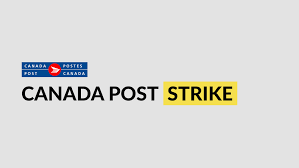
Solving the Urban Challenge
With rapid urbanization, cities face congestion, pollution, and logistical inefficiencies. The future of package delivery will rely on smart urban logistics, including micro-fulfillment centers, optimized delivery routes, and shared delivery networks to ensure faster and more sustainable services.

Innovations in Tracking: Ensuring Package Security
Consumers expect real-time tracking and security for their shipments. Advances in GPS tracking, blockchain-based package authentication, and AI-powered predictive delivery are enhancing transparency, reducing losses, and improving customer trust.
Drones and Robots: Futuristic Delivery Solutions
Autonomous drones and robotic couriers are revolutionizing last-mile delivery. Companies like Amazon and Wing are testing aerial deliveries, while sidewalk robots are being deployed in urban areas to ensure faster, contactless, and cost-effective deliveries.
The Impact of E-Commerce on Delivery Services
The exponential growth of e-commerce has transformed logistics. Retailers are adopting flexible fulfillment strategies such as same-day delivery, curbside pickup, and dark stores to meet growing consumer demand while reducing delivery times.
Beyond Packages: Delivering Services and Experiences
The delivery industry is shifting from just transporting packages to offering enhanced customer experiences. Subscription-based deliveries, AI-driven personalization, and eco-friendly packaging are key trends shaping the future of consumer satisfaction.
Hyperlocal and On-Demand Deliveries
The rise of quick commerce (Q-commerce) is fueling the demand for hyperlocal deliveries. Businesses are partnering with local fulfillment centers and leveraging AI-driven demand forecasting to ensure rapid, cost-efficient, and seamless deliveries.
Sustainability and Green Logistics
Eco-conscious consumers are driving the push for green delivery solutions. Companies are investing in electric delivery vehicles, biodegradable packaging, carbon-neutral logistics, and alternative fuel sources to minimize environmental impact.
Autonomous Vehicles and AI-Driven Logistics
Self-driving delivery vans and AI-optimized route planning are enhancing efficiency and reducing operational costs. AI-powered logistics platforms are predicting demand, optimizing inventory, and streamlining supply chain operations.
Crowd-Sourced and Gig Economy Deliveries
Platforms like Uber Eats and Door Dash have paved the way for crowd-sourced delivery models. Companies are leveraging independent couriers and peer-to-peer networks to expand delivery capabilities and improve cost efficiency.
Regulatory and Compliance Challenges
As new technologies emerge, governments are implementing regulations on drone deliveries, data privacy in tracking systems, and carbon footprint accountability. Businesses must stay compliant while innovating to maintain a competitive edge.
The future of package delivery is evolving rapidly, with technology, sustainability, and customer experience driving major transformations. Businesses that adapt to these trends will stay ahead in an increasingly dynamic logistics landscape.
OUR SERVICES: CHECK HERE
TRACK ORDERS- CLICK HERE







